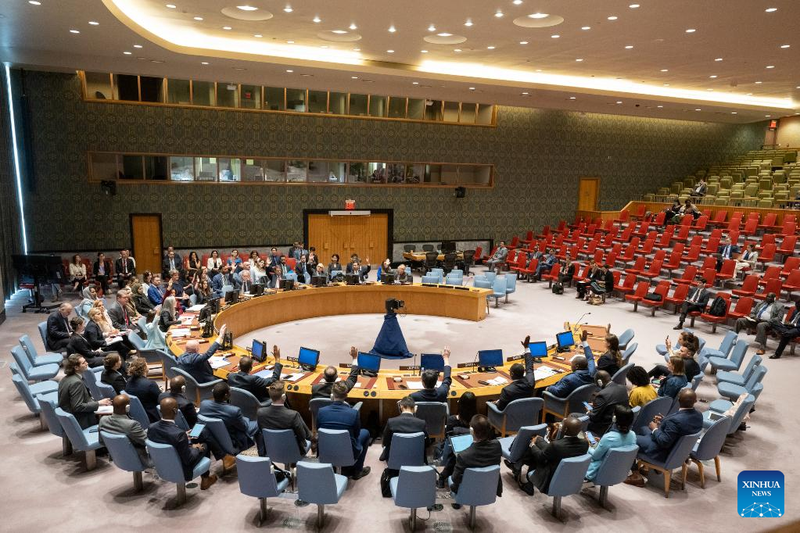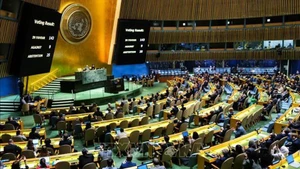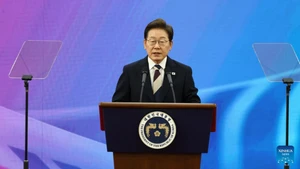Resolution 2682 received the unanimous support of the 15-member Security Council and requested that the UN secretary-general's special representative for Iraq and UNAMI prioritise the advice, support and assistance to the government and people of Iraq on promoting political dialogue and national and community-level reconciliation.
The resolution calls on the UN secretary-general's special representative for Iraq and UNAMI to continue to further advise and assist the government of Iraq in strengthening electoral preparation and processes, to ensure free and fair elections.
In addition, the UN secretary-general's special representative and UNAMI were tasked with coordinating with the Iraqi government in promoting, supporting and facilitating local integration of internally displaced persons and displaced Iraqis in Syria.
The resolution also requires the UN Secretary-General Antonio Guterres to conduct and provide the Security Council with an independent strategic review of UNAMI, in consultation with the Iraqi government and other sides, assessing the existential threats to the peace and security of Iraq, as well as the continued relevance of UNAMI's tasks and priorities.
The resolution of the UN Security Council was adopted in the context of the international community witnessing the recent efforts of the Iraqi Government, in both security and economic areas.
Iraqi National Security Advisor Qasim al-Araji has just visited Iran and hosted a meeting with the Secretary of the Supreme National Security Council of Iran (SNSC) Ali Akbar Ahmadian.
At the meeting, the two sides stressed the necessity of implementing the border security agreement signed between the two Muslim countries at the end of March 2023. The agreement is a road map for the two countries to work together to ensure the security of the common border area, helping to improve not only the security of the two countries but also the peace of the whole region.
The resolution of the UN Security Council was adopted in the context of the international community witnessing the recent efforts of the Iraqi Government, in both security and economic areas.
In terms of economy, the Organisation of the Petroleum Exporting Countries (OPEC) welcomed Iran's return to the oil market when sanctions are lifted. During his first visit to Iran, OPEC Secretary General Haitham Al Ghais expressed his confidence that Tehran is a responsible member of OPEC and is capable of bringing in significant production volumes, contributing to securing the balanced and stable operation of the oil market.
Meanwhile, the Iraqi Ministry of Oil informed the Turkish state energy company BOTAS of the resumption of oil exports and the completion of contracts with international companies to market its crude oil.
In late March, Iraq halted exports of about 450,000 barrels of oil per day, from its northern fields to Turkey's Ceyhan port via a pipeline, after Tehran won a case against Ankara in a lawsuit, over the long-running dispute surrounding independent oil exports by the Kurdish regional government in Iraq.
The Jordanian Ministry of Energy and Mineral Resources also confirmed the resumption of fuel imports from Iraq via tankers to Jordan, with a total of 422 tankers loaded with Iraqi oil, of which 300 have docked at Jordan’s ports.
In early May, Jordan extended an agreement with Iraq to continue importing crude oil at a discount, under which Jordan imported 10,000 barrels of crude oil per day from Iraq, equivalent to 7% of the country's daily needs.
Positive changes in the fields of security and economy from Iraq have been appreciated by the international community. The decision to extend UNAMI's activities in Iraq for another year is to accompany the Government and people of Iraq in the process of restoring security and stability in the Middle Eastern country.
















